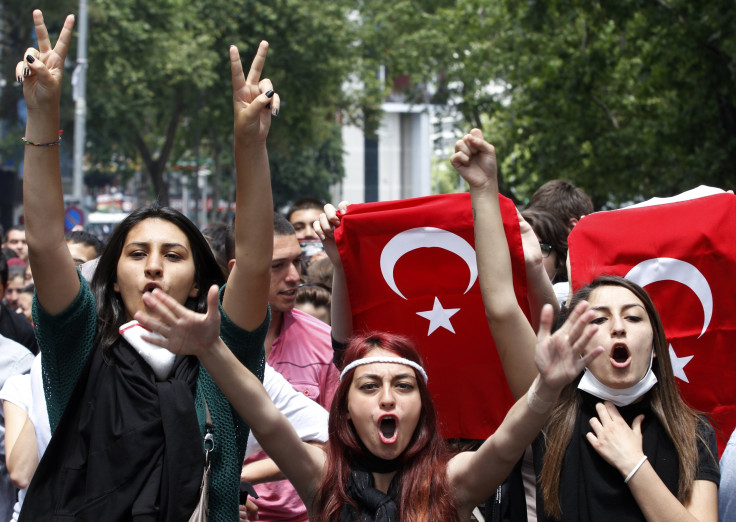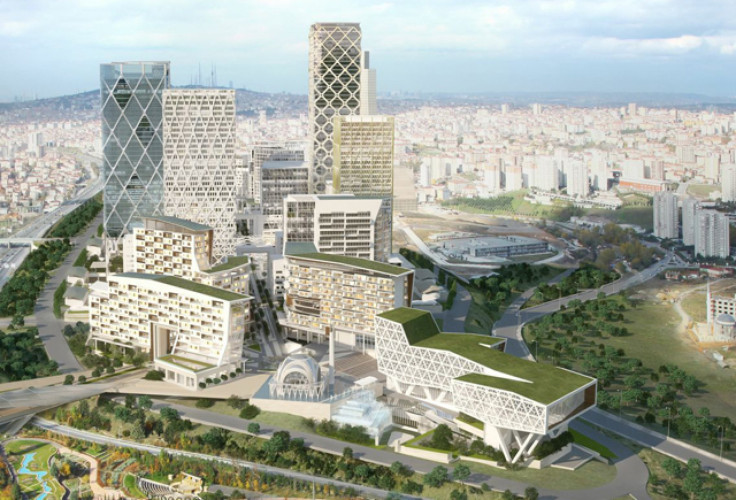Turkey's Protests Could Spell Economic Ruin If They Last Through The Summer

Turkey’s economy will crumble if the protests in Istanbul and Ankara continue through the summer, one of the country’s leading economic commentators said.
Violent street demonstrations, which began as a peaceful sit-in to keep Gezi Park from becoming a shopping mall, descended into riots against Prime Minister Recep Tayyip Erdogan’s government over the weekend.

Now, the fate of the world’s 17th largest economy -- once considered a potential powerhouse for growth as it courted wealthy Arab allies while Europe languishes in recession -- will be determined by the ruling Justice and Development Party, a conservative Islamist party in the traditionally secular republic.
“It all depends on if this is going to be temporary or if these protests are going to continue all through the summer,” Emre Deliveli, an economist and columnist for Istanbul's Hurriyet Daily News, told the International Business Times. “And that depends on how the ruling party is going to respond.”
Erdogan, who scoffed at protesters he referred to as rabble-rousing “bums,” left the country earlier on Monday for a three-day diplomatic trip to North Africa, a region remodeled in the wake of the Arab Spring protests, which began in Tunisia and led to the overthrow of dictators there, in Libya and in Egypt. Turkey has long been considered a model of moderate Islamist government to the nascent democracies.
The absence of the prime minister, whose anti-protest rhetoric has inflamed the street demonstrations over the past week, bodes well for quelling some protesters’ demands.
“Right now, he’s away for three days, and maybe he’ll calm down a bit,” Deliveli said. “Maybe some government ministers will make more peaceful remarks. Right now he’s not helping at all.”
He said a summer of protests would indubitably bruise the economy in two major departments: foreign direct investment and tourism.
“The Turkish economy depends a lot on external finance and capital flow,” Deliveli said. “If the hedge funds get spooked and they get out of Turkey, the economy is going to crash.”
Plus, summer is Turkey’s peak tourism season. The burgeoning industry, which attracted more than $31.4 million in 2011, even prompted the government to announce the construction of a new airport in Istanbul earlier this year.

Along with the airport comes the International Financial Center, a Wall Street-style campus on Istanbul’s Asian side, slated for completion at the end of 2016, according to HOK, the firm that designed the structure. Deliveli said construction would not likely be halted by the protests, which are centered away from the site of the future finance hub.
A spokesman for HOK did not immediately respond to questions about whether the protests would affect the construction schedule.
© Copyright IBTimes 2024. All rights reserved.












